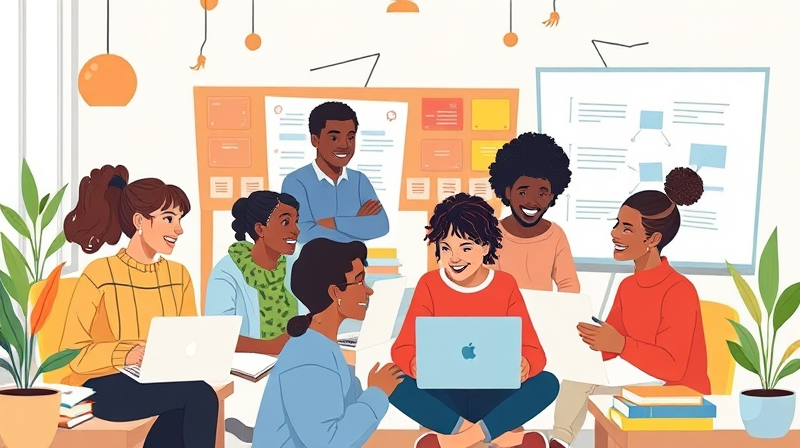Skill development is a cornerstone of personal and professional growth. Whether you are embarking on learning a new instrument, entering the tech world, or simply aiming to improve communication skills, the path to mastery starts with consistent practice. This article will guide you through the essential principles and strategies that transform potential into expertise.
Every journey begins with a single step, and in the process of learning, establishing a disciplined routine is vital. In a world that encourages multitasking, many underestimate the power of focusing on one skill at a time. When you allow yourself to immerse in an activity and practice it methodically, you set the stage for impressive achievements.
The Role of Deliberate Practice
Deliberate practice is not about mindless repetition. It involves a structured process where each session is designed to push you beyond your comfort zone. This form of practice emphasizes specific goals, continuous feedback, and deliberate adjustments, ensuring that your efforts produce measurable improvements.
For example, athletes break down their techniques with the help of coaches, while coders engage in systematic problem-solving. This targeted approach ensures that every practice session is used to test new boundaries. The key is to continually challenge yourself just a bit more than you did before.
Incorporating deliberate practice means setting realistic yet challenging goals. By analyzing performance, you identify areas for improvement and chart a course for incremental progress. Ultimately, this method is about learning from each error to naturally advance your competence.
The Power of Consistency
Consistency is the engine that powers skill development. Many believe that mastering a skill requires thousands of hours of practice. However, recent studies show that dedicating roughly 45 minutes daily over a month can move a beginner to competence. The idea is to commit to small, regular practice sessions rather than sporadic, intensive bursts.
This consistent approach helps create a sustainable learning model that maintains motivation and minimizes burnout. By setting aside specific time slots, you integrate skill development into your routine and avoid the pitfalls of procrastination.
Furthermore, practicing regularly makes it easier to measure your progress. With each session, you are reminded that even minimal effort adds up, helping you see tangible improvements over weeks and months.
Overcoming Challenges in Skill Development
Learning a new skill is rarely a smooth process. The early phases are often filled with mistakes, frustrations, and moments of self-doubt. However, these challenges are essential and serve as indicators of progress. When you acknowledge the struggle, you open the door to genuine learning and growth.
It is crucial to understand that mistakes are not failures; they are opportunities to improve. By focusing on one aspect of a new skill at a time, you avoid getting overwhelmed. This targeted focus ensures that every error acts as a stepping stone toward improvement.
Adopting a mindset that values every lesson reveals strengths you might have otherwise overlooked. In the process, you'll find that the hurdles encountered are simply part of the broader journey toward mastery.
The Importance of Feedback and Collaboration
No one masters a skill in isolation. Feedback from mentors, peers, or coaches plays a vital role in refining your approach. Using constructive criticism, you can pinpoint weaknesses and focus on strengthening those areas.
Collaboration is also an essential element of the learning process. Participating in group sessions or partnering with a practice buddy not only fosters accountability but also introduces you to new perspectives and techniques. In an organizational setting, feedback loops and peer support can be the catalyst for collective success.
In essence, collaboration transforms the solitary act of learning into an interactive and dynamic journey. The synergy created by shared experiences often leads to innovative ways of approaching long-standing challenges.
Practical Tips for Effective Skill Development
- Start Small: Begin by breaking down the skill into manageable parts to keep your progress steady and measurable.
- Apply the 80/20 Rule: Focus on the 20% of the techniques that yield 80% of the results. This method helps in honing the most impactful aspects of any skill.
- Leverage Resources: Utilize online tutorials, books, expert sessions, and other materials to supplement your learning and provide additional perspectives.
- Adopt Long-term Goals: While short-term objectives are important for tracking progress, keep long-term aspirations in sight, as they act as a source of inspiration during tough times.
- Foster a Learning Culture: Whether on an individual level or within an organization, create an environment that continuously values and supports learning and development.
Final Thoughts
The journey towards skill mastery is a rewarding yet challenging process. With discipline, structured practice, and the willingness to face challenges head-on, you can transform your abilities and achieve significant progress.
Remember: Each step taken, no matter how small, propels you closer to your goals. Embrace every learning opportunity, adjust your strategy based on feedback, and remain consistent in your practice. Over time, the compounded effort of your regular practice will lead to mastery.
Ultimately, skill development is about creating a cycle of continuous improvement. By understanding and applying the principles of deliberate practice and consistency, you set the foundation for long-term success and personal growth. Keep pushing your limits, and let every setback be a stepping stone toward excellence.








